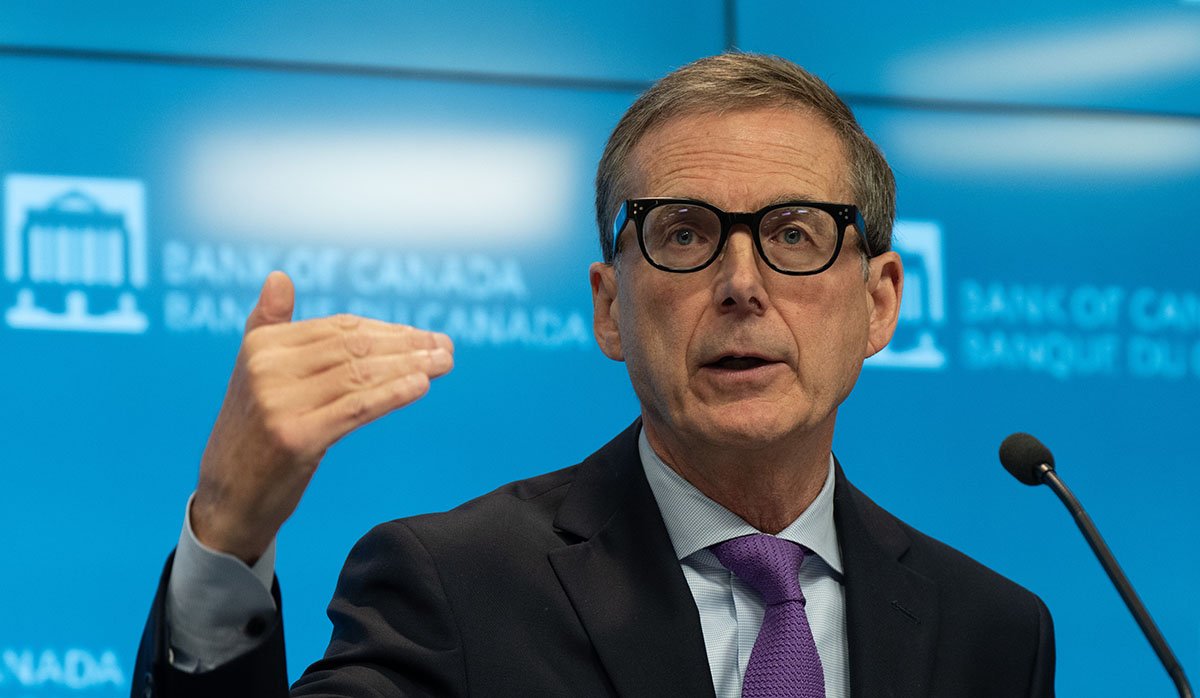Pierre Poilievre and the tax-cutting conundrum
THE CANADIAN PRESS/ Patrick Doyle
Conservative Leader Pierre Poilievre rises during Question Period in the House of Commons on Parliament Hill in Ottawa on Thursday, June 13, 2024.
“These are economists who believe the GST is a good tax; which of course comes from the school of economics that believes there's such a thing as good taxes."
That was former Conservative leader Stephen Harper at a Canadian Club of Toronto speech in late 2007. He was taking potshots at critics of his cut to the Goods and Services Tax that firmly established his reputation as the tax-cutting prime minister.
The quote came to mind this week when Pierre Poilievre and his Conservative caucus sought to cement their own tax-cutting credibility by voting against Justin Trudeau’s new levies on wealth.
The Liberals - who are scrambling to raise revenue to pay for new spending programs - are increasing the tax on capital gains by about eight percentage points, with some thresholds added to prevent smaller transactions from being captured. Capital gains are profits made from the sale of an asset, like a cottage or business.
The government is casting the move as a tax on the rich to distract from the fact they are scrambling to raise revenue. But that’s not the only reason.
They are also trying to create a wedge. Trudeau and his finance minister, Chrystia Freeland, chose to introduce the tax in a separate motion – rather than include it in the broader budget bill – to draw out Poilievre on the issue.
There had been plenty of Ottawa chatter in recent weeks about whether Poilievre could support the tax increase - much like he had done when the Conservatives voted for the Liberal government’s anti-replacement worker legislation.
The Conservatives have always seen themselves as Canada’s anti-establishment party, but Poilievre is crafting his own variation of the theme. And spurred on by strong poll numbers, supporters appear to be accommodating and curious about where it’s all going,
I suspect there would have been an open mind within the party had Poilievre supported the tax.
But higher taxes, it appears, was a bridge too far.
Tax reform task force planned
At the same time, the Conservatives appear to be feeling a bit uncomfortable about it all. Along with his decision to vote against the tax, Poilievre announced he would set up a tax reform task force within 60 days of being prime minister that would:
Design a tax cut on “work, hiring and making stuff” - very Harper-like.
Reduce the share of taxes paid by the “poor and middle class” - less-Harper like.
Tautologically speaking, one group paying a lower share implies another group will pay a higher share – presumably the rich and corporations.
It’s possible that everyone could pay less in taxes under a Poilievre plan, even as the system becomes more progressive. It’s also possible that Poilievre has not fully bought into the Harper agenda of “cutting taxes for EVERY single individual, family and business.” (See 2007 speech).
Poilievre - who has a wide advantage in the polls with the working class, and Canadians working hard to join the middle class - is clearly not willing to cede the class wars to Trudeau, who wrested the economic agenda and ultimately power from Harper in 2015 by (re)introducing income redistribution to the forefront of Canadian politics.
But even if the Liberals fail to create that political wedge, there are other benefits to forcing the Conservatives on policy.
The more the Conservatives commit to, the fewer degrees of freedom they’ll have. The less freedom they have, the closer they’ll be to the realm of policy trade offs that Liberals are currently treading water in.
Trudeau has spent the last eight years trying to downplay trade offs in economic policy – i.e. climate change transition comes at no economic cost, spending money today doesn’t undermine our ability to spend it tomorrow, etc. He’ll spend the next year doing nothing but talking about trade offs.
Trudeau has no more surprises to offer, and little goodwill to spend. We know exactly where he stands. He’ll use all available levers to expand the state to achieve non-economic objectives such as decarbonization and social programs, but he typically does it within reasonable boundaries and with policies filtered through an economic lens.
For example, unlike the U.S. President Joe Biden, the Liberals are maintaining a semblance of fiscal discipline which is why they are scrambling to raise cash.
Where do the Conservatives stand?
Well, they’ve made it clear this week they’ll be cutting taxes well beyond the removal of the carbon tax. You can expect the Liberals to ask a lot of questions on how it will all be financed.
Poilievre will argue there’s scope to cut waste in government to pay for some of it. And there will be enough goodwill with the public at the start of a new term to adopt the old Liberal strategy of downplaying trade offs by touting virtuous cycles associated with smarter policies.
But the constraints will be hard.
Harper managed to lower taxes by about two percentages of GDP - which would be worth nearly $60 billion a year in today’s dollars. But he inherited an oil boom, falling interest rates and a relatively clean fiscal envelope that had already been scaled back by the previous LIberal government.
Poilievre will have none of these. Whatever his legacy ends up being, it will be a tough road to make massive tax cuts a big part of it.





